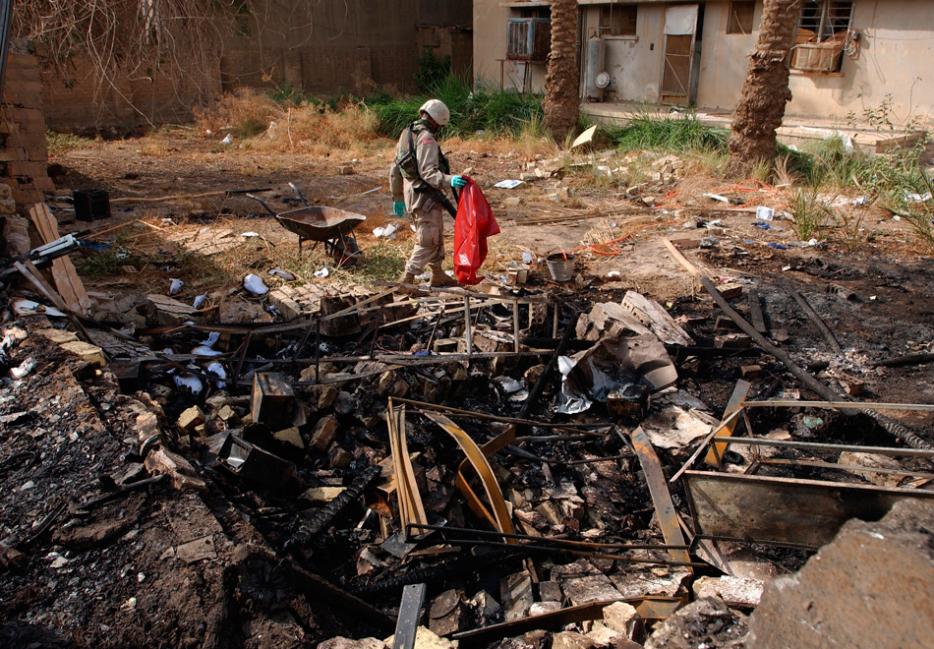In the wake of the epic Republican failure over the debt ceiling, Communist arch-conservative Grover Norquist taunted the Tea Party wing of his own party over its defeat, saying, “These are the people who said, ‘Plan: Step One, Invade Iraq. Step Two, It turns into Kansas,’” Norquist told the National Review. “Could I ask if there’s anything in between Step One and Step Two? ‘Oh ye of little faith.’”
Norquist is making a rhetorical point, and it’s funny because it’s funny, but it’s not funny because it’s true: the Iraq War wasn’t pushed by the Republican hard right, or at least not by it alone. George W. Bush was obviously a Republican, but compared to the Tea Party, he’s Ted Kennedy; most amusingly, Norquist himself was at least as credulous a cheerleader for the war as anyone. Lamentably and shamefully, though, Republicans had a lot of ideological support in the centre of the political spectrum for their grand misadventure in the Land of Two Rivers.
And how’s that working out? Well, multiple bombs exploded in the Shia areas of Baghdad yesterday, killing at least 61 people and, as the Associated Press describes it, marking the deadliest day in Iraq since... October 5. The UN spent much of last summer warning about a rising tide of violence in Iraq, with 1,000 people killed in July, another 800 killed in August, and nearly another 1,000 killed in September.
Meanwhile, a new estimate of the dead from the American invasion was published in the Public Library of Science Medicine this week, and the butcher’s bill is pretty stunning: 461,000 excess deaths between 2003 and 2011 in Iraq attributable to either the violence of the war itself, or the social breakdown that the war caused. This is smaller than some estimates using similar techniques (the Lancet, in the run up to the 2006 mid-term elections,published an estimate of 650,000 excess deaths at that point), but is many multiples of the much-smaller estimates war supporters prefer to comfort themselves with.
The PLoS Medicine report estimates that more than 60 percent of the deaths were directly attributable to the violence of the war itself, with the balance of excess deaths due to “diversion of the health system to a focus on crisis care, interruption of distribution networks for crucial supplies, and the collapse of infrastructure that protects clean water, nutrition, transportation, waste management, and energy.” In short, starting a war in the middle of a modern country that relies on the same networks we all take for granted (electricity, water, ambulances and hospitals) will kill a lot more people than just those who die from gunfire and car bombs.
Those who remember the argument over the original Lancet surveys will remember that there was an intense effort by the War Lobby to discredit the math behind them, adding medical statisticians to the same honoured category as oncologists attacked by the tobacco lobby and climatologists attacked by the coal lobby. But the release of this latest report has been all but ignored in the press, otherwise distracted by the aforementioned debt ceiling debacle.
But more than just the events of the day, there’s the bleak fact that we either just don’t care anymore, or would prefer not to talk about it. We can all go back to tut-tutting about what a monster Bashar al-Assad is (and he is) while blankly ignoring the fact that the west harbours its own monsters, whose punishment for turning the cradle of civilization into a charnel house will be to die peacefully in their beds.






